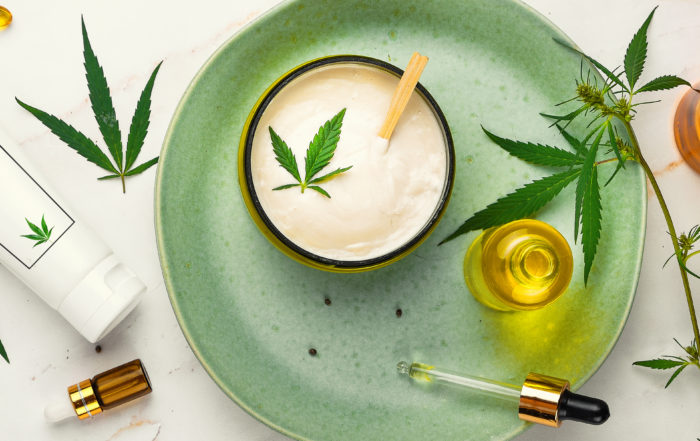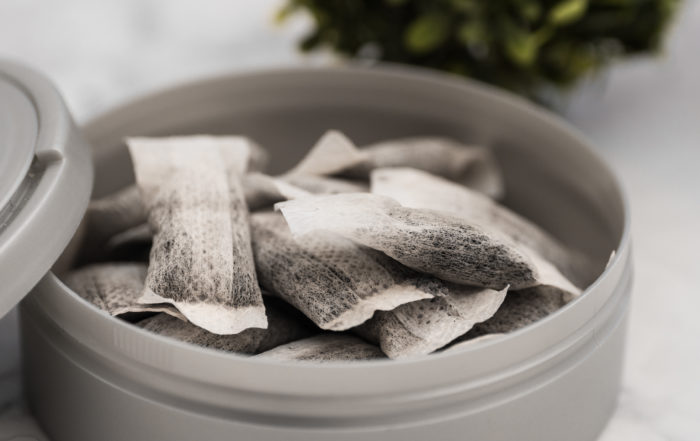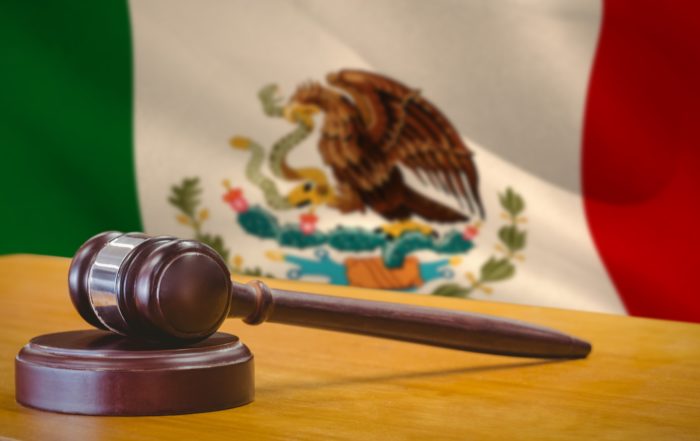
A Cannabidiol Catalyst? Recent Events Increase Pressure on FDA to Regulate CBD
By Frederick (Rick) R. Ball and Justin M. L. Stern
Introduction
For consumers, the widespread availability of products containing cannabidiol (CBD) is old news. But for those in the cannabis industry—and in particular, those monitoring applicable regulatory developments—the state of CBD remains largely in flux and continues to be marred by uncertainty.
Under the 2018 Farm Bill, the U.S. Food and Drug Administration (FDA) retained its regulatory authority over products derived from hemp, including CBD incorporated into products it traditionally regulates, such as food, dietary supplements, and cosmetics. Unfortunately for the industry, FDA has yet to propose or issue formal regulations concerning the manufacture, distribution, or sale of such products.[1] At the same time, FDA has issued numerous warning letters to producers and retailers incorporating CBD into products operating in the complex gray area between state and federal law. Nevertheless, recent events occurring across all three federal branches of government may reflect an impetus for change in FDA’s approach to CBD products.
Surge in CBD-Related FDA Activity
Again, as with the fact that CBD products are commonly sold, it is hardly breaking news that FDA has been issuing warning letters to CBD retailers and marketers. In fact, FDA sent the first FDA warning letter concerning CBD-related products—to Twin Falls Bio Tech, LLC, located in South Carolina—in late February 2015.[2] While there was a relative slump in the number of warning letters sent to CBD businesses in 2017 and 2018 (four and one, respectively), the practice swelled again in 2019.[3] Between January and mid-October of last year, seven CBD companies received FDA warning letters. Then, in November, FDA rattled the industry by announcing it had issued an additional fifteen warning letters to CBD businesses—nearly tripling the number of warning letters it had mailed out so far that year.[4] The Federal Trade Commission, acting pursuant to its authority under the Federal Trade Commission Act, also got into the action and issued, either jointly with FDA or on its own, seven warning letters.[5]
The fifteen warning letters issued late last year to CBD retailers across the country strung together a number of common themes concerning how FDA believed recipients were violating the Federal Food, Drug, and Cosmetic Act (FDCA) by manufacturing, distributing, and marketing CBD-infused products. Among other things, in the letters, FDA—as it has in the past—reiterated its position that CBD is not a dietary supplement and may not be marketed as such, that CBD may not be added to foods or beverages, and that retailers may not make disease claims or structure-function claims with respect to CBD. But in its November 25, 2019 announcement, FDA went a step further by revising its consumer update about CBD safety concerns and specifically acknowledging “that it cannot conclude that CBD is generally recognized as safe (GRAS) among qualified experts for its use in human or animal food.”[6] The revised consumer update was changed to specifically indicate that “CBD has the potential to harm you” and that it “can cause liver injury,” “increase . . . the risk of sedation and drowsiness” when used with alcohol or other central nervous system depressants, and lead to “irritability and agitation.”[7] The update also warned that laboratory studies involving animals showed reproductive toxicity, “including in the male offspring of CBD-treated pregnant females.”[8] (These stated risks are also contained in the FDA-approved labeling for Epidiolex, the cannabidiol-based drug approved by FDA in 2018.[9])
Taken as a whole, the spike in warning letters, together with FDA’s simultaneous announcement that it specifically cannot state that CBD is GRAS, shook the industry and consumers alike. By way of the letters, CBD companies received a harsh reminder that they continue to operate in murky waters where CBD is federally lawful and CBD-infused cosmetics and topical products appear to be largely acceptable at both the state and local level, but where CBD-infused ingestible products are lawful in certain states and localities and illegal in the eyes of federal agencies. Despite FDA’s position on CBD as not GRAS and explicit health-related warnings from FDA concerning use of CBD, consumers continue to purchase CBD products at startlingly increased rates. According to one estimate, sales of CBD products in 2019 were, at mid-year, on track to increase by 700% over the previous year, up to $5 billion.[10] An increasing market and insatiable consumer appetite for the products may be one of many factors forcing FDA action on CBD.
USDA’s Interim Final Rule on Hemp Production
While publication of the U.S. Department of Agriculture’s (USDA’s) Interim Final Rule (IFR) on hemp production was welcomed by those in the industry (though subject to a number of critiques), that regulatory promulgation changed nothing with respect to FDA’s treatment of CBD products. In fact, in its introductory analysis section, the IFR explained that “FDA has authority to issue a regulation allowing the use of [cannabis-derived ingredients] in food and dietary supplements” and went so far as to predict that if the “FDA does not provide clarity about their plans for future regulation of CBD, there will continue to be uncertainty and downward pressure on the CBD portion of the hemp market.”[11]
Pressure from Congress
The drafters of the USDA IFR are not the only federal employees pushing FDA to take action on CBD regulation. In October of last year, Senator Chuck Schumer hosted a press call during which he touted the economic potential presented by CBD, but warned that without clarity from FDA, industry participants—“farmers, growers, producers, consumers, and vendors”—will be left in the dark about exactly which rules they are to follow.[12] As such, Senator Schumer called on FDA “to do its job in a timely manner and issue guidance related to CBD classification, labeling, quality, marketing, and sales.”
Other legislators, perhaps impatient with the speed at which FDA has approached CBD regulation, have taken a different route—one that may force FDA’s hand notwithstanding its preferred pace. In mid-January of this year, a bipartisan group of lawmakers in the House of Representatives introduced legislation that would require FDA to treat hemp-derived CBD as a dietary supplement—something FDA has been unwilling to do.[13] The bill—H.R. 5587—would accomplish this goal by amending the FDCA by making an exception for hemp-derived CBD in both the law’s provision explaining what is not a dietary supplement, 21 U.S.C. § 321(ff)(3)(B), and in the law’s “Prohibited acts” section.[14] This approach, as opposed to others that have sought to sway the opinion of FDA decision-makers, is an effort to change FDA policy by altering its charter: the FDCA.
Hiccups in Judicial Proceedings
Pressure to act on CBD also seems to be mounting in (or emanating from) the judicial branch, as an increasing number of lawsuits targeting CBD manufacturers and retailers have popped up in federal court. While discussions abound concerning the ability of marijuana businesses to state claims or mount defenses in federal court (given the illegal nature of marijuana under the Controlled Substances Act), those concerns have not been raised with respect to hemp-derived CBD, given that the substance is no longer federally unlawful. Yet the treatment of CBD under federal law—or the lack thereof—recently placed a federal lawsuit over CBD products on ice.
In Snyder v. Green Roads of Florida LLC, a putative class action lawsuit brought in the Southern District of Florida, consumers alleged that Green Roads sold CBD gummies, tea, and oil that contained CBD concentrations different from that advertised.[15] In any other industry, this would be a routine matter, one that the court would be well-equipped to manage. Butat the beginning of this year, the court granted the defendant’s motion to stay the proceedings pursuant to the primary jurisdiction doctrine, deferring to FDA’s authority over food labeling and recognizing that “the rulemaking processes at the federal level is active.” Despite the fact that the state of Florida began regulating CBD products—and their labels—on January 1, 2020, the court still found that all considerations weighed in favor of staying the case pending FDA action. This case, and likely others that will follow suit, demonstrate how machinations of government—i.e., the courts—may be impeded by FDA’s current position with respect to CBD regulation.
Conclusion
In a way, of course, FDA already does regulate the market for CBD products. By determining that CBD is not a dietary supplement and that its addition to food or beverages renders the resulting products adulterated drugs, FDA is exercising its regulatory authority—just not in the way that industry participants prefer. Nevertheless, those who have waited for a shift in FDA’s CBD policy may find comfort in the increasingly turbulent environment, as systemic quagmires posed by the current regulatory framework give rise to louder calls for change.
[1] The authors note that the treatment of cosmetic products incorporating CBD would be subject to the regulations governing cosmetics.
[2] See FDA.Gov: Warning Letters and Test Results for Cannabidiol-Related Products (last revised Nov. 26, 2019), available at https://www.fda.gov/news-events/public-health-focus/warning-letters-and-test-results-cannabidiol-related-products.
[3] See id.
[4] FDA.Gov: FDA Warns 15 Companies for Illegally Selling Various Products Containing Cannabidiol as Agency Details Safety Concerns (last revised Nov. 25, 2019), available at https://www.fda.gov/news-events/press-announcements/fda-warns-15-companies-illegally-selling-various-products-containing-cannabidiol-agency-details.
[5] See Oestreich, Elizabeth, FDLI.org: CBD Enforcement – Who is Keeping Watch?, November/December 2019, available at https://www.fdli.org/2020/01/cbd-enforcement-who-is-keeping-watch/#_ftn6.
[6] Id.; see also FDA.Gov: What You Need to Know (last revised Nov. 25, 2019), available at https://www.fda.gov/consumers/consumer-updates/what-you-need-know-and-what-were-working-find-out-about-products-containing-cannabis-or-cannabis.
[7] Id.
[8] Id.
[9] See Center for Drug Evaluation and Research: App. No. 210365Orig1s000: Labeling, available at https://www.accessdata.fda.gov/drugsatfda_docs/nda/2018/210365Orig1s000lbl.pdf.
[10] See CNN.Com: CBD Product Sales are Booming. Now FDA Needs to Weigh In (last revised July 9, 2019), available at https://www.cnn.com/2019/07/09/business/cbd-sales-fda/index.html.
[11] 7 CFR Part 990, Establishment of Domestic Hemp Production Program, 84 Fed. Reg. 58522, 58544.
[12] Sen. Charles E. Schumer: Press Releases (October 23, 2019).
[13] H.R. 5587 (116th Congress, 2d Session).
[14] See id. at § 1.
[15] Snyder v. Green Roads of Florida LLC, Case No. 0:19-cv-62342-UU, Dkt. 25 (S.D. Fla. Jan. 3, 2020).
Update Magazine
Spring 2020

 Frederick (Rick) R. Ball is one of the co-leads of Duane Morris’s Life Sciences and Medical Technology Industry Group. He also serves as a member of the Executive Committee of the Board of FDLI. His primary focus is helping pharmaceutical companies, biologics manufacturers, medical device manufacturers, contract service providers, food companies (including supplement manufacturers) and other healthcare providers navigate the complex challenges faced by state and federal regulation of their industries. He takes a team approach to helping clients reach legal solutions that make sense for their business.
Frederick (Rick) R. Ball is one of the co-leads of Duane Morris’s Life Sciences and Medical Technology Industry Group. He also serves as a member of the Executive Committee of the Board of FDLI. His primary focus is helping pharmaceutical companies, biologics manufacturers, medical device manufacturers, contract service providers, food companies (including supplement manufacturers) and other healthcare providers navigate the complex challenges faced by state and federal regulation of their industries. He takes a team approach to helping clients reach legal solutions that make sense for their business.





